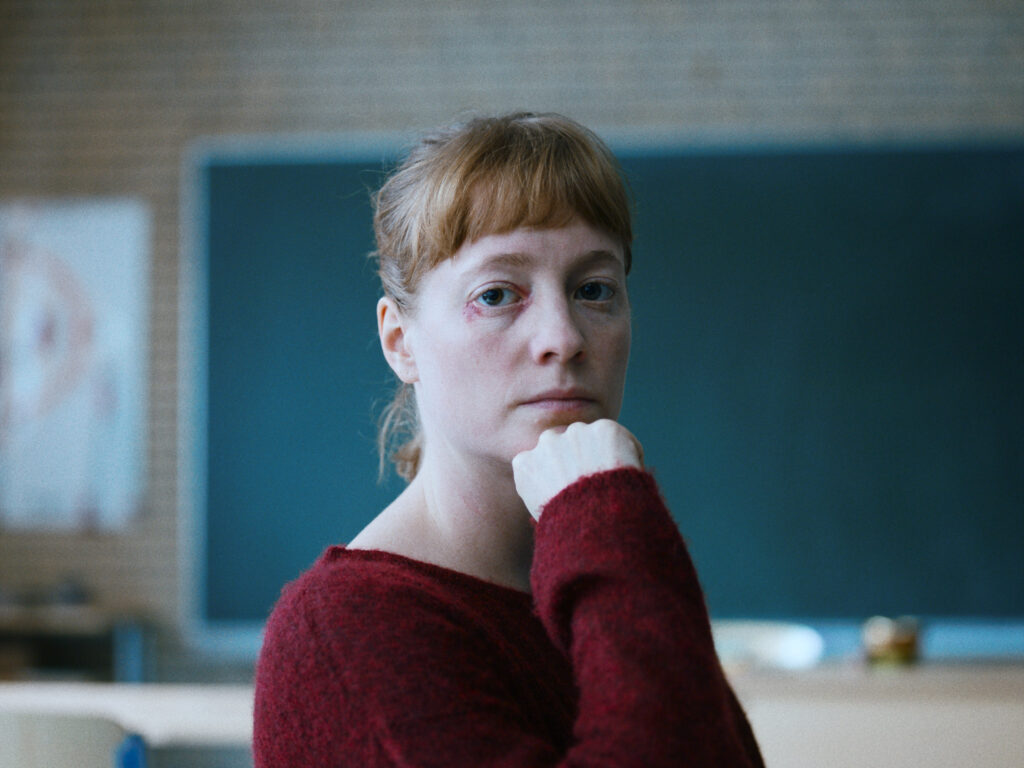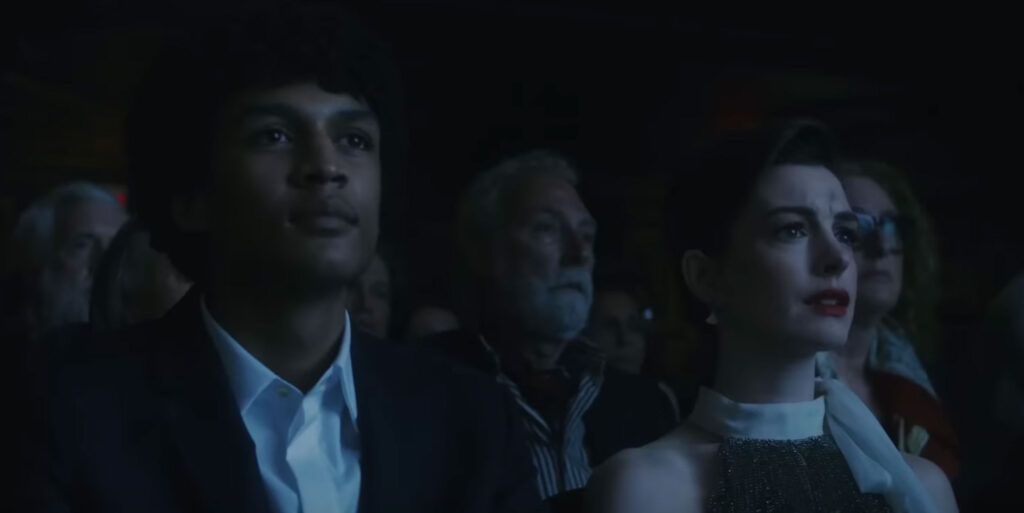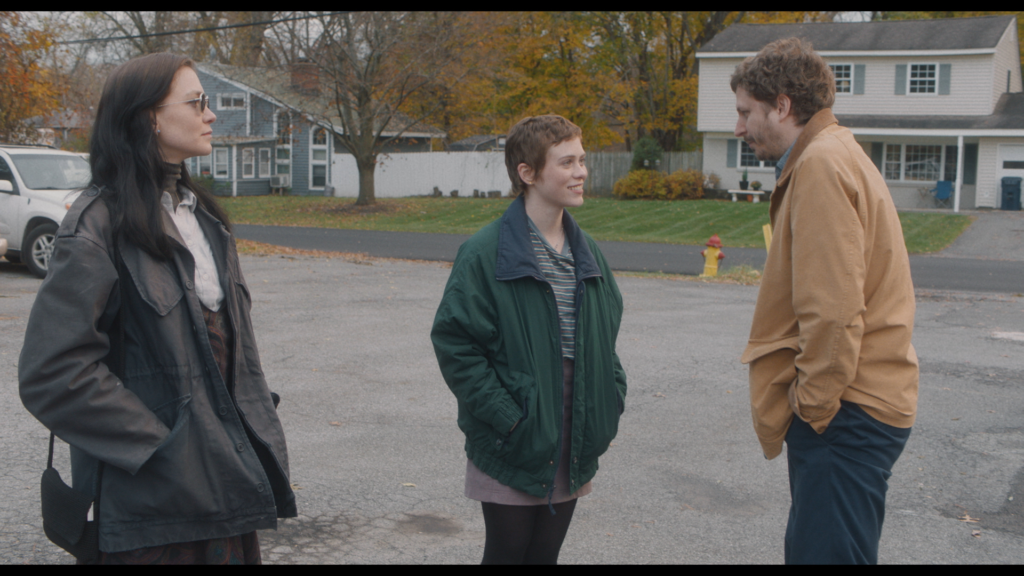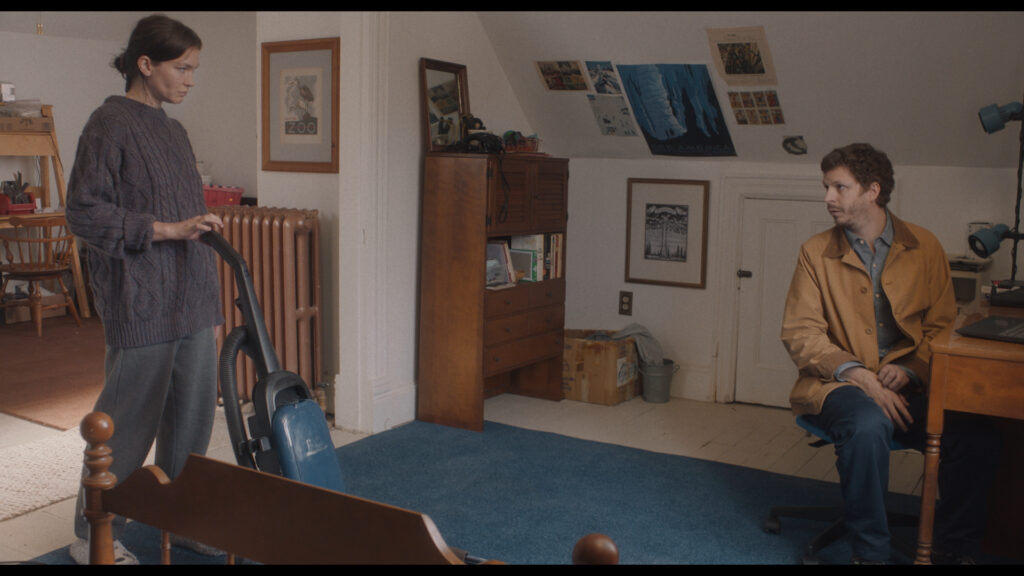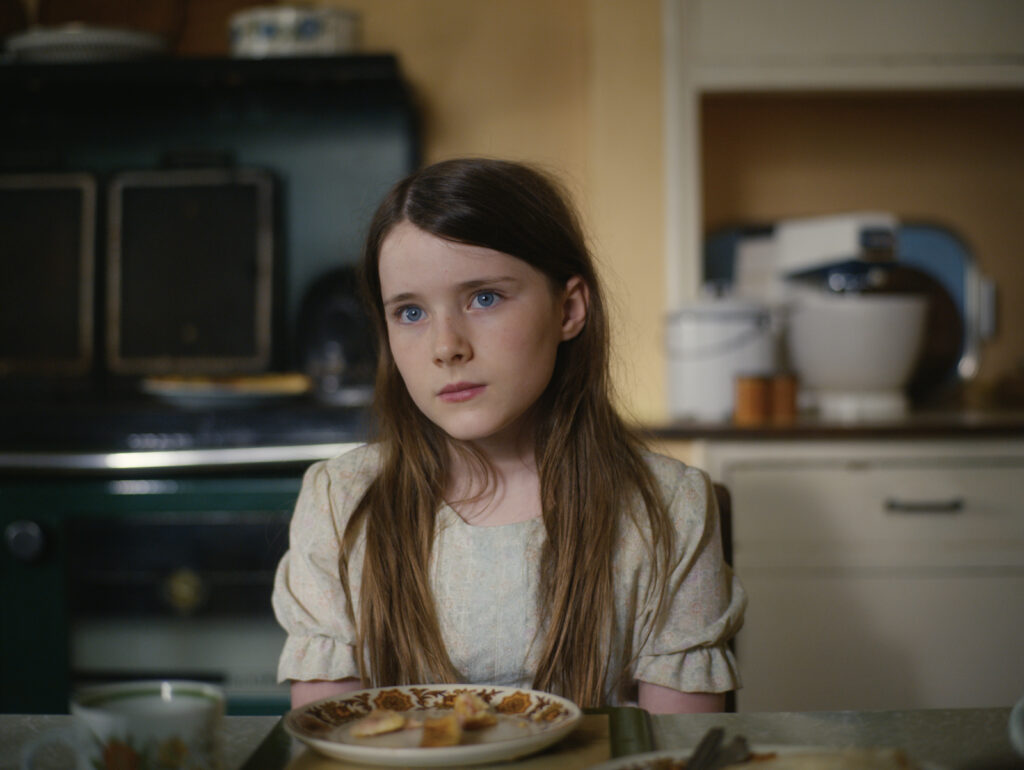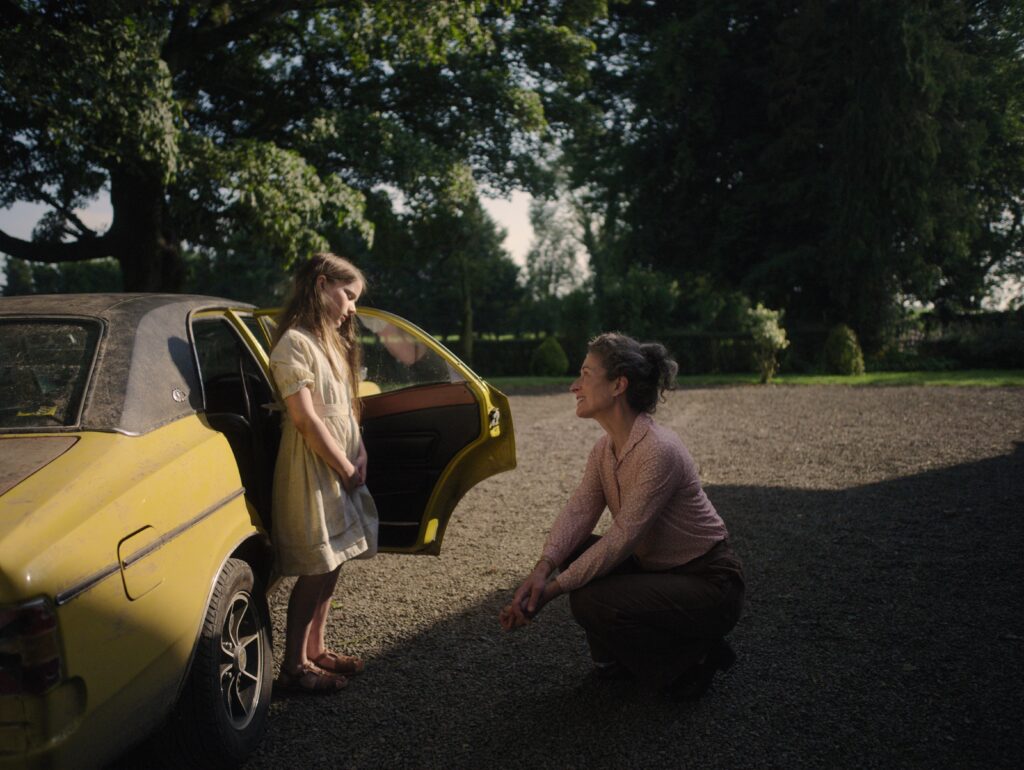April 15, 2023
by Carla Hay
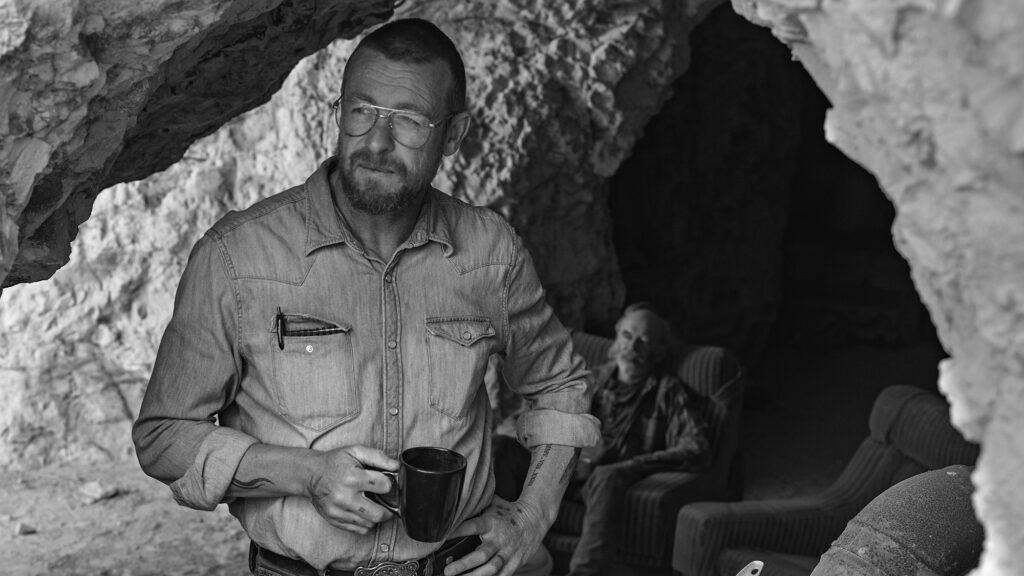
Directed by Ivan Sen
Culture Representation: Taking place in the Australian Outback fictional town of Limbo, the dramatic film “Limbo” features a cast of white and First Nations/indigenous characters representing the working-class and middle-class.
Culture Clash: A police detective travels from an unnamed Australian city to Limbo to review a cold case about a teenager who disappeared from Limbo 20 years ago.
Culture Audience: “Limbo” will appeal primarily to people who are fans of Simon Baker and well-made, “slow burn” crime dramas about missing people and fractured families.
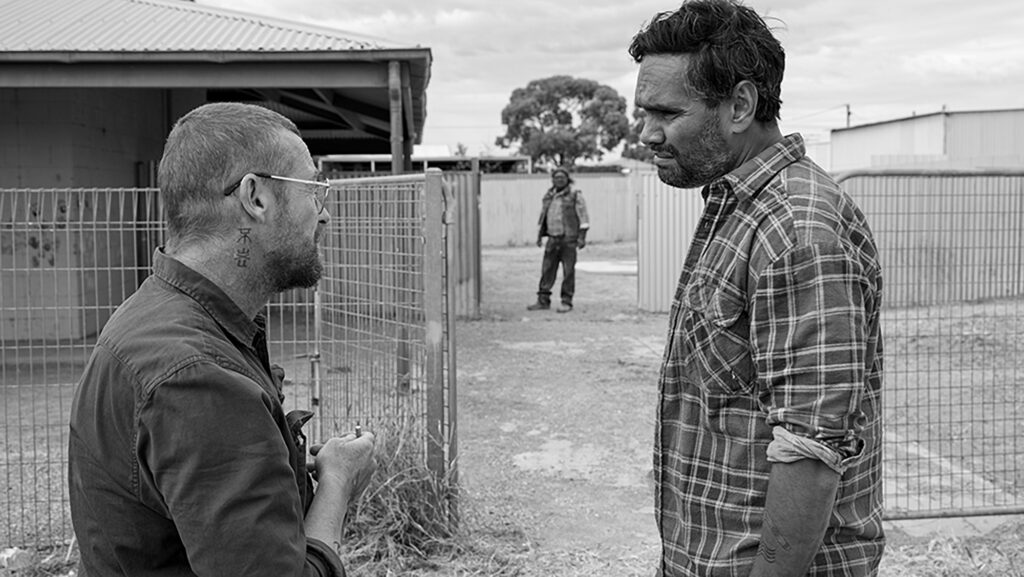
The spellbinding and atmospheric crime drama “Limbo” moves at a pace that might be too slow for some viewers. But beneath this unhurried tone are simmering tensions and resentments over racism and generational trauma. Viewers expecting a format that’s similar to a TV series crime procedural will be disappointed by “Limbo,” which offers no easy answers to the mystery at the center of the story. However, by the end of the film, there is at least one outcome that shows the reality of how people can expect one thing and end up getting something else.
Ivan Sen is the chief creative force of “Limbo,” since he is the movie’s director, writer, cinematographer, editor, composer, colorist and visual effects supervisor. He is also one of the movie’s producers. “Limbo” had its world premiere at the 2023 Berlin International Film Festival and made the rounds at other film festivals that year, including the Toronto International Film Festival. “Limbo” earned three nominations for the 2024 Australian Academy of Cinema and Television Arts (AACTA) Awards—Best Indie Film, Best Lead Actor (for Simon Baker) and Best Supporting Actor (for Rob Collins)—and won the prize for Best Indie Film.
“Limbo” takes place in the Australian Outback fictional town of Limbo, but the movie was actually filmed in Coober Pedy, Australia, whose main industries are mining and tourism. “Limbo” was filmed in black and white, which makes the desert atmosphere look even more stark and at times even more foreboding than if the movie had been in color. In this remote area depicted in “Limbo,” feels of isolation and stagnation seep into the tone of the movie as well as the character performances.
“Limbo” begins with the arrival of police detective Travis Hurley (played by Baker), who drives into Limbo and stays at the only motel in town: the Limbo Motel. It’s an unusual motel because it’s partially inside a cave. (Several of “Limbo’s” scenes take place inside or near caves.) Therefore, Travis’ room looks like a cave room.
Travis is in Limbo for a few days to review the missing person case of Charlotte Hayes, a First Nations/indigneous person who lived in Limbo and who disappeared when she was a teenager 20 years ago. The case has gone cold, but Travis has been assigned to investigate the case and to find out if there are any new clues that can be uncovered. During his investigation, Travis gets more emotionally involved with Charlotte’s family than he expected when he first arrived in town.
Viewers soon find out that Travis is not a squeaky-clean police officer. One of the first things that he does when he goes in his motel room is melt an unnamed opioid powder in a spoon and shoot up the substance in his arm with a hypodermic needle. Most people will assume that the drug is heroin or Fentanyl, based on how Travis has a “nodding out” reaction after injecting this drug.
Travis’ drug addiction is not mentioned or shown again in the movie, until he has a private conversation with someone where he confesses that he uses drugs. It’s during this conversation that Travis also mentions that he was formerly an undercover narcotics officer and used drugs as part of this job. It’s unknown if he got hooked on drugs directly because of his narcotics officer job or if he had already been addicted. However, what’s clear is that his drug addiction is a secret from almost everyone Travis knows. He tells the person he confesses this secret to that this is the first time Travis has told anyone that he currently uses drugs.
Most of “Limbo” shows Travis doing interviews with Charlotte’s family members and other potential witnesses. The people he spends the most time with are Charlotte’s older stepbrother Charlie (played by Collins) and Charlie’s sister Emma (played by Natasha Wanganeen), who is a single mother raising three kids. The parents of Charlotte, Charlie and Emma are all deceased.
The family is still haunted by Charlotte’s disappearance and have become disillusioned about ever finding out what happened to her because police have treated cases of missing indigenous people as inferior to cases of missing white people. The indigenous people in the area call themselves “black” people. Charlie tells Travis that in Charlotte’s missing person case, police delayed investigating until a week after Charlotte disappeared. Charlie and Emma believe that if Charlotte had been white, police would have investigated Charlotte’s disappearance immediately.
Two of the children whom Emma is raising are actually Charlie’s biological kids: rebellious and sullen son Zac (played by Marc Coe) is about 12 or 13 years old, while cheeky and inquisitive daughter Ava (played by Tiana Hartwig) is about 9 or 10 years old. Emma’s biological daughter Jessie (played by Alexis Lennon), who is about 11 or 12 years old, has an absentee father, and she is often bluntly rude and brutally honest. For example, Jessie tells Travis that he looks like a drug dealer instead of a cop.
Charlie is a bachelor who lives alone. Why is Emma taking care of Charlie’s children? The movie doesn’t mention what happened to the mother(s) of Zac and Ava, but Emma tells Travis that Charlie had some type of guilt-ridden mental breakdown after Charlotte disappeared. For a while, Charlie was under suspicion for Charlotte’s disappearance, but he insists that he was falsely accused by two local indigenous men, one of whom had a personal grudge against Charlie. Charlie says he was at a cousin’s house when Charlotte disappeared. Charlie has been estranged from his children for years and doesn’t talk to them, but he will often drive by in his truck and look at his children, and then drive away.
As Travis continues his investigation, he hears more about the racial divide in Limbo. This racial tension doesn’t surprise Travis, but he sees firsthand how this racism can affect people’s lives and attitudes. Charlie is very suspicious of Travis when they first meet each other and says to Travis, “I don’t talk to cops, especially white ones.” However, Charlie eventually opens up to Travis when he sees that Travis is the Hayes family’s best chance of getting Charlotte’s case investigated. Emma is also wary of Travis at first (but she’s not as openly hostile as Charlie is), and she eventually agrees to be interviewed by Travis too, which she does separately from Charlie.
During interviews and conversations between Charlie and Travis, Charlie sometimes bitterly complains about how indigenous people are unfairly targeted by white law enforcement officers, who are quick to harass or arrest indigenous people for the same things that police officers excuse or ignore if white people do these things. There’s a scene where Travis and Charlie are talking outside while Charlie is drinking a beer. A police car drives by them and doesn’t stop. Charlie says to Travis: “Usually, they tell you to move along [for] drinking on the street like this.” Charlie tells Travis why he thinks the police inside the car didn’t stop to reprimand Charlie: “Maybe because of you.” In other words, Charlie is saying that Travis has white privilege.
Throughout the investigation, Travis keeps hearing about a white man named Leon, whom Charlie and Emma believe is the most likely suspect in Charlotte’s disappearance. Leon had a reputation in the area for hosting parties for young people, who got alcohol and maybe other drugs illegally from him. Leon seemed especially fixated on indigenous teenage girls. Leon had a green Ford Laser at the time of Charlotte’s disappearance. What happened to that car is revealed in the movie.
Travis finds out soon after he arrives in Limbo that Leon died of dementia the year before. Leon’s elderly brother Joseph (played by Nicholas Hope), who is a heavy drinker and is in obvious ill health, tells Travis about Leon dying and also shows Leon’s unmarked grave to Travis. Leon’s photo is never seen in movie, but it’s implied that Leon was close to the same age as Joseph, so Leon was most likely a middle-aged man when Charlotte disappeared. Travis also listens to audio recordings of interviews that police did separately with Charlie and Leon, who also denied anything to do with Charlotte’s disappearance.
As Charlie begins to cooperate more with Travis, Charlie points Travis in the direction of more potential witnesses in the First Nations/indigenous community. A middle-aged man named Stoney (played by Andrew Digaman), who is very suspicious of police, told Charlie that years ago in a pub, Leon once made a drunken confession to Stoney that Leon killed an unnamed person. Oscar Porter (played by Joshua Warrior), who had a personal feud with Charlie that involved at least one physical brawl, was one of the men who accused Charlie of having something to do with Charlotte’s disappearance. Travis finds out that Oscar’s accusation was because of something other than a personal vendetta against Charlie.
Because Travis is only in town for a few days, and he is the only investigating officer for this cold case review, the chances are very slim that Travis will solve this case in such a short period of time. However, there is enough revealed in the story for viewers to put together the pieces of this puzzle, as certain conclusions can be made, based on what Travis and other people discover. Viewers will have to look for visual clues, as well as consider things that are said and the credibility of the people saying these things.
It’s not revealed right away, but Travis is a divorced father who is no longer in contact with his only child (a son) because his ex-wife remarried, and his son likes his stepfather more than he likes Travis. When Travis tells Emma about his family situation, he describes it as bowing out of his son’s life, but you get the feeling that there’s more to the story that Travis isn’t telling, especially since his drug addiction undoubtedly affects all aspects of his life. “Limbo” doesn’t go too deep into Travis’ personal history, but this information about being estranged from his son is enough to see why Travis is emotionally touched by Charlie’s estrangement from his own children—especially with Zac, who feels abandoned by Charlie and is very angry at Charlie.
Emma makes a confession to Travis about something that happened in her past. This confession shows that Charlie isn’t the only one who feels guilty about Charlotte’s disappearance. Baker, Collins and Wanganeen give admirable performances as three damaged but not completely broken people who are doing what they can to ease some of their pain and hopefully heal. By the end of the movie, viewers will care not just about the “whodunit” aspect of the story but will also be concerned about the well-being of these characters.
“Limbo” is the name of the movie and the name of the fictional town in the movie, but it also describes the tragic state of mind that loved ones of missing people feel when they don’t know what happened to their loved ones who disappeared. Travis sees the trauma that this case has brought onto the Hayes family, so it makes him confront certain issues in his own life. The way that Travis reacts doesn’t make his problems go away but it might give him a little bit of redemption. “Limbo” is a solemn and meaningful reminder that when people talk about a system that fails, there are untold numbers of people who get hurt and might never recover.
Brainstorm Media and Music Box Films released “Limbo” in select U.S. cinemas on March 22, 2024. The movie was released in Australia and part of Europe in 2023.



